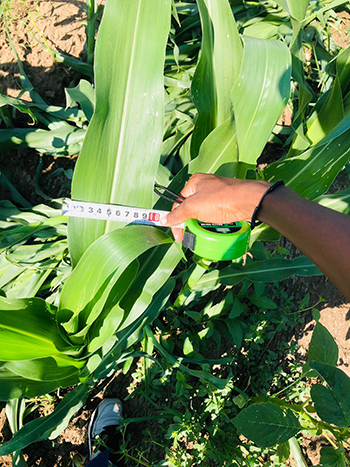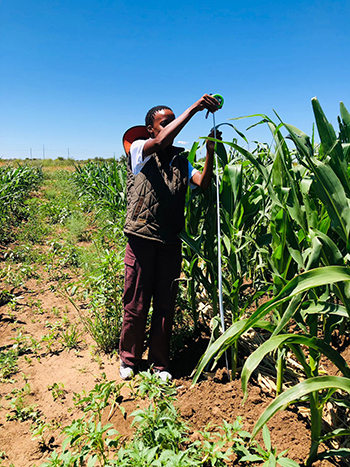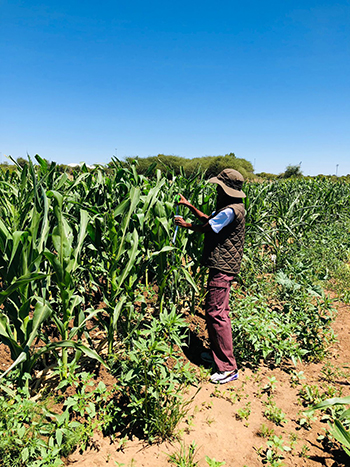Poultry manure could revolutionise farming practices in South Africa, particularly among subsistence farmers in rural areas. This is one of the research findings of Mandisa Mazibuko, a researcher from the Faculty of Natural and Agricultural Sciences.
Her research delves into the effects of poultry manure on selected maize cultivars and soil minerals with a focus on promoting sustainable agriculture.
She applies recommended rates to determine the rate that produces a high yield and enhances soil mineral content. Consequently, the research also investigates the optimal poultry manure rate and the most suitable maize cultivar for both rain-fed and irrigated field conditions. The application of manure is done according to recommended rates to assess the impact of different poultry manure rates on maize yield and soil mineral improvement.
In South Africa, where resources are scarce and access to financial credit is limited for many farmers, Mandisa has recognised the importance of sustainable farming practices. Conventional farming methods are reliant on pesticides, synthetic fertilizers and herbicides which pose health risks to consumers and put a strain on the environment. Sustainable agriculture, on the other hand, advocates for organic manuring, reduced use of synthetics and recycling of crop residues, offering a more financially viable and environmentally friendly alternative.
“Central to my approach is the use of poultry manure as a natural fertilizer. Unlike synthetic alternatives, poultry manure enriches the soil with organic matter, promotes microbial activity and provides essential nutrients for plant growth,” she says.
The implications of her research extend beyond academic curiosity. By promoting sustainable farming methods, she aims to empower commercial and subsistence farmers, particularly those in rural communities. These communities often lack the resources and knowledge necessary to adopt sustainable practices, making her research invaluable in addressing food security concerns and mitigating the impacts of climate change.
Furthermore, Mandisa advocates for integrated weed management strategies, emphasising manual weed removal over chemical herbicides. This approach not only reduces costs for farmers but also minimises risks to beneficial organisms and human health, contributing to a more sustainable agricultural ecosystem.
To assess the long-term impact of her research, Mandisa employs soil analysis before and after manure application and multiple planting seasons to track its effectiveness over time. By measuring changes in soil minerals and plant growth, she aims to provide concrete evidence of the benefits of sustainable farming practices.
“Beyond immediate environmental and agricultural benefits, my research underscores the broader socio-economic advantages of sustainable agriculture. By increasing food production while reducing input costs, sustainable farming can contribute to rural development and economic growth, ultimately improving the overall well-being of communities.”



Mandisa Mazibuko's journey towards sustainability.
